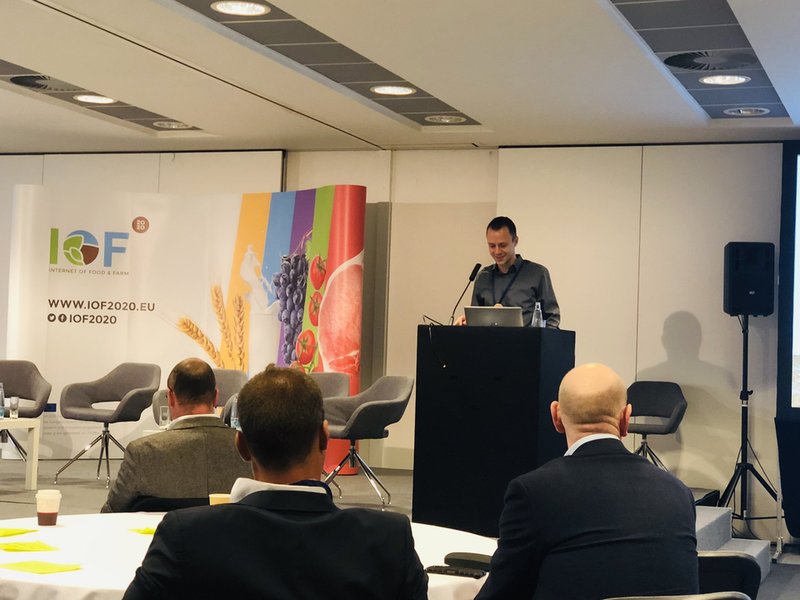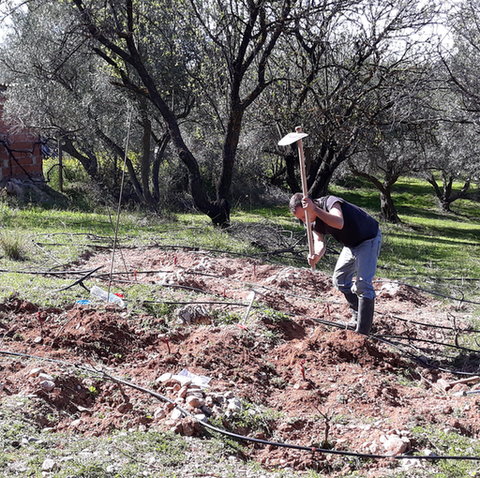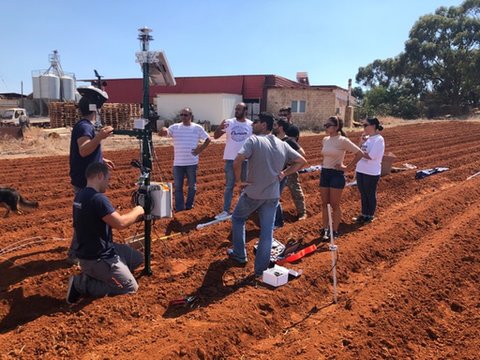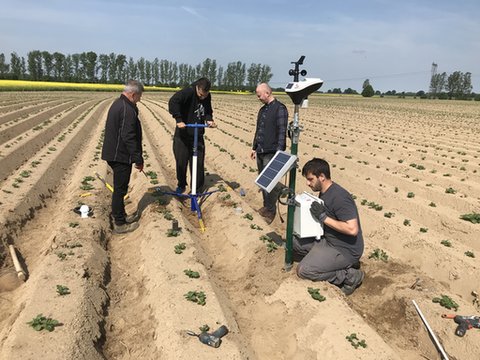Article
A day at the office:
farm life for Nikos from Greece

Nikos lives in Athens-Greece and works for NEUROPUBLIC S.A., which is known as one of the pioneering SMEs in Greece offering smart farming services. He has a degree in Physics and a master in Software Engineering. For the last 15 years he has been working as a researcher and software architect. However, agriculture has always been his passion. He spends as much time as possible, especially during the weekends, on the country-side taking care of the small family farm at the outskirts of Athens. Nikos has noticed that during the last decade the usual autumn rains have been significantly reduced. Some years there isn’t any rain until November while the temperature remains abnormally high. This is a big problem for his olive trees. They need autumn rains in order to recover from the Mediterranean summer drought.
Nikos’ small farm is not the only one affected by this disruption of the climate. At NEUROPUBLIC’s offices the day starts with a discussion on the recent aggregated weather measurements for an 80 hectares’ potato field in Poland. This field is part of the IoF2020 “Use Case 1.6 Data-driven potato production” where NEUROPUBLIC deployed soil and weather monitoring stations. Data from the stations are collected at a cloud computing service and feed decision support algorithms. The outcome is processed by agronomists who generate the respective farming advice that ultimately will be passed on to the farmers aiming to optimise irrigation, fertilisation and pest management. Partners in Poland have already indicated that during the recent years they had to increase the irrigation due to the lack of sufficient rain. Irrigating 80 hectares is really challenging and significantly affects the cost of production.
Recent developments from Poland’s pilot field will be analysed, among other issues, at an internal meeting at 12:00. Nikos is part of a group of experts from various disciplines including agronomists, electrical engineers, meteorologists, financial advisors and graphic designers. Together they are trying to incorporate the latest technological developments and design hardware and software solutions for the agriculture domain. Key persons from each expertise will participate at the meeting (“a lot to discuss, but let’s hope that this time it will not last forever!”)

The trend of very dry conditions in Poland also seems to continue in the summer of 2019. Aggregated hydrological indicators show below average measurements for rainfall, relative humidity and soil moisture. This means that certain additional actions are needed. The irrigation models need to be adapted accordingly in order to avoid that the plants suffer from unnecessary stress and at the same time also save water. This is also the case for the algorithms forecasting the infestations of potato early blight (Alternaria Solani) and potato late blight (Phytophthora). Action items are assigned to the group of experts responsible for the design of the decision support models.
"Smart farming solutions might be one of the key answers."
Other issues on the agenda include the problems that the sensor installation crew faced during the deployment of a new soil moisture sensor at the UC1.6 pilot field in Cyprus. During the drilling an unexpected area with rocks was discovered, so quick and accurate decisions need to be taken.


Installing new sensors at the pilot fields in Cyprus (left) and Poland (right).
Nikos is updating the group on the latest developments on the data interoperability translators that he is working on. One of the key objectives of IoF2020 is to break the silos of isolated IoT solutions. In order to realise the vision of a system-of-systems approach through the utilisation of standardised data modelling approaches. The latest code release allows the exchange of data among NEUROPUBLIC’s infrastructure with a 3rd party weather prediction service. Nikos suggests that information richness will allow the decision support systems to generate more accurate advice. However, revealing data collected from the farms raises various issues that need to be carefully handled.
Now that the meeting is finished, it’s time for Nikos’ team to get their hands dirty and follow-up on the many tasks discussed. However, they always have the bigger picture in mind: The climate is changing but so are agriculture practices, and smart farming solutions might be one of the key answers in the future.